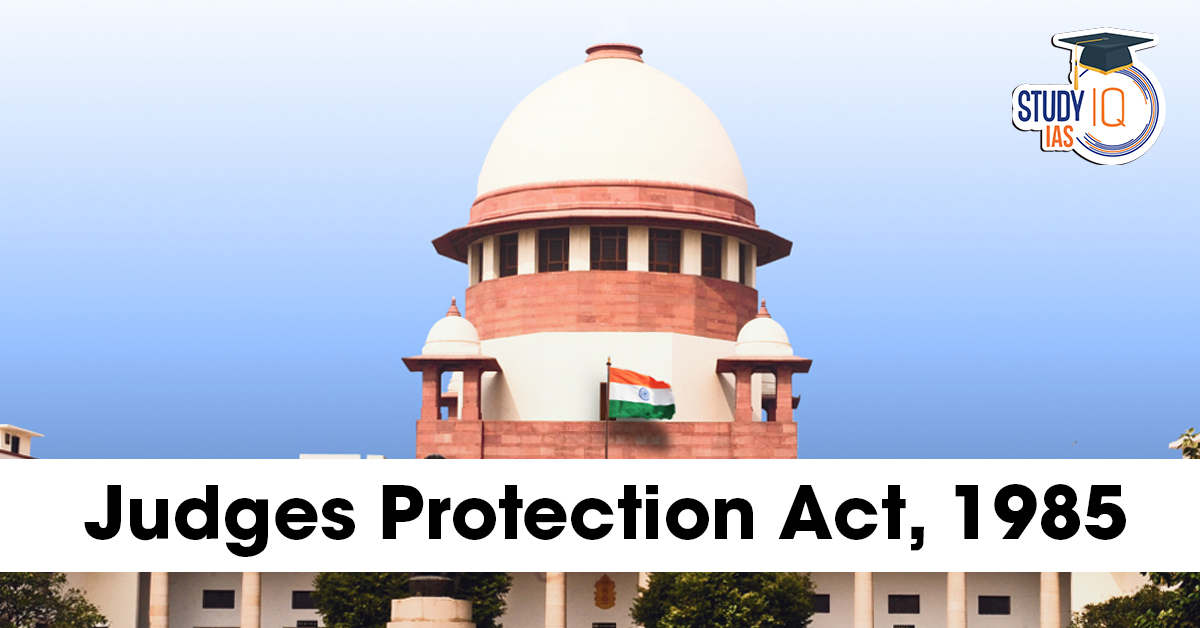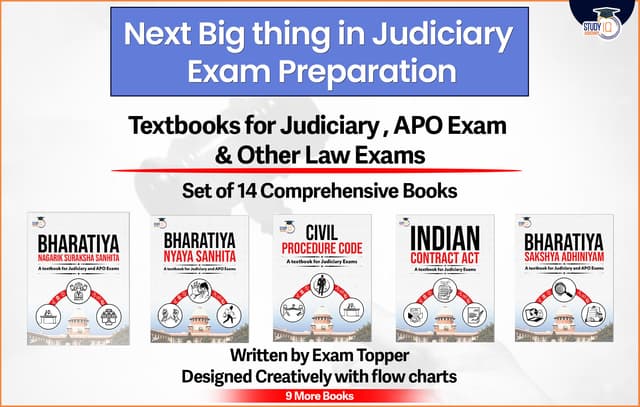Table of Contents
Context: The Supreme Court reserved verdict on Justice Yashwant Varma’s plea challenging the in-house inquiry, citing the Judges Protection Act 1985.
About the Judges Protection Act 1985
Judges (Protection) Act, 1985 is an important law in India that gives judicial protection to judges and other people discharging judicial duties. It was passed to give them added protection so that they might carry out their work without fear of intimidation or harassment.
- Aim: To safeguard judicial independence by providing immunity to judges from legal action for acts done in their official capacity.
- Objective: To protect judges of civil, criminal, and constitutional courts from unwarranted litigation for judicial acts done in the course of their duty.
Key Provisions of the Act
- Immunity from Civil and Criminal Proceedings- Section 3: No court shall entertain or continue any suit or legal proceeding against a judge for any act done or ordered to be done by him in the discharge of his judicial duty, even if done more than jurisdiction, provided it was done in good faith.
- Extension to Officers Acting Under Judicial Orders: The protection extends to court staff or officers acting in pursuance of a judge’s order.
- Protection Beyond the Constitution: Goes beyond Article 121 and Article 211, which restrict discussion of a judge’s conduct in legislatures, by providing statutory immunity from prosecution.
- Application: Applies to judges of all courts, including High Courts and subordinate courts, and also Magistrates and Tribunals.
Limitations and Exceptions (Section 3(2))
While immunity is wide, it is not total. Sub-section (2) of Section 3 makes it clear that this immunity does not bar or in any way affect the power of the Central Government, State Government, the Supreme Court, or any High Court to initiate action against a Judge. This action may be:
- Civil
- Criminal
- Departmental
- Or otherwise
This is an important balance, guaranteeing that judges are not oppressed by frivolous cases brought by individuals but are also not shielded from proper disciplinary or legal proceedings launched by the state or the superior judiciary for misconduct, corruption, or other illegal activities. It ensures judicial accountability without encroaching upon judicial independence.
Complementary, Not Exclusive (Section 4)
The Act aims to afford further protection. The Act in Section 4 clearly states that the provisions of the Act are in addition to, and not in derogation of, the provisions of any other law which already makes provisions for the protection of judges. That is, it adds to previous legislation such as the Judicial Officers’ Protection Act, 1850.
Importance of the Act
The Judges (Protection) Act, 1985, is a pillar of judicial independence in India for the following reasons:
- Fearless Judging: It empowers judges to give judgments and do their work in the absence of a perpetual fear of being subjected to legal proceedings by dissatisfied litigants or other parties.
- Prevention of Frivolous Litigation: The Act avoids overburdening the judiciary with malicious cases aimed at harassing or intimidating judges due to their verdicts.
- Upholding Public Trust: By protecting judges, the Act supports upholding the integrity of the judicial process and public trust in the judiciary as a fair and impartial body.


 Trial by Social Media: Public Shaming, D...
Trial by Social Media: Public Shaming, D...
 Governors’ Address to State Legislatur...
Governors’ Address to State Legislatur...
 Mandating Prior Approval for Corruption ...
Mandating Prior Approval for Corruption ...



















